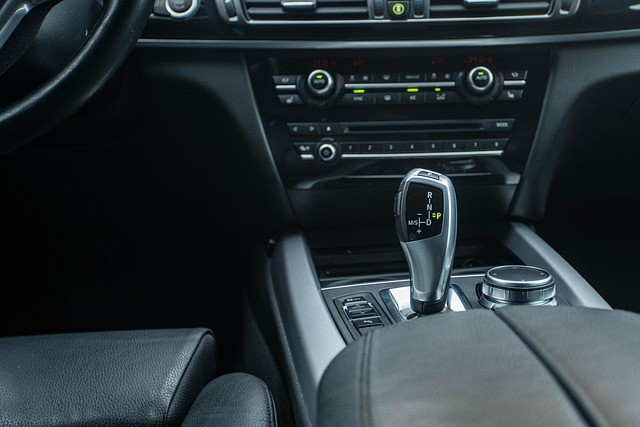Understanding your car insurance policy and making informed decisions about deductibles, coverages, and vehicle value is crucial for lowering premiums. Shopping around for competitive rates, improving credit score, reducing risks through safe driving habits, and taking advantage of discounts can significantly decrease auto insurance costs. Regularly reviewing and adjusting your policy based on changes in your life also ensures you're paying only for the coverage you need.
Tired of paying high auto insurance premiums? Discover effective strategies to lower your auto insurance premium. This comprehensive guide walks you through essential steps, including understanding your policy, shopping around for competitive rates, improving your credit score, reducing risks, utilizing discounts, and considering higher deductibles. By implementing these tactics, you can significantly save on your car insurance without compromising coverage.
Understand Your Policy and Coverage Options

Understanding your car insurance policy and coverage options is a crucial step in figuring out how to lower your auto insurance premium. Different policies offer various levels of protection, with corresponding price tags. By familiarizing yourself with what’s covered and what isn’t, you can make informed decisions. Check your policy’s deductibles, which represent the amount you pay out-of-pocket before insurance kicks in. Increasing your deductible can significantly reduce your premium, but ensure it’s a realistic amount you’re comfortable paying.
Additionally, review your coverage options carefully. You might be overpaying for features you don’t need. For instance, if you own an older vehicle with minimal value, you could opt for liability-only coverage instead of comprehensive or collision. Also, consider the safety features already equipped in your car; some insurance companies offer discounts for vehicles with anti-theft devices, airbags, or advanced safety systems, as these can lower the risk of accidents and claims.
Shop Around for Competitive Rates

When looking to save on your car insurance, one of the most effective strategies is to shop around for competitive rates. Compare quotes from multiple insurers using online platforms or direct communication. This process allows you to access different coverage options and pricing structures, enabling you to identify the best value for your needs. By shopping around, you can often find significant discounts or lower premiums that could save you hundreds of dollars annually.
Remember, insurance companies use a variety of factors to determine policy prices, including your driving history, vehicle make and model, and location. Understanding these variables can help you make informed decisions. For instance, insuring a safer vehicle or maintaining a clean driving record can lead to lower premiums. Additionally, choosing higher deductibles may reduce your auto insurance premium, but ensure it aligns with your financial comfort level for unexpected repairs.
Improve Your Credit Score for Better Rates

Improving your credit score can significantly help lower your auto insurance premium. Credit history plays a crucial role in determining insurance rates because it’s seen as an indicator of financial responsibility and risk. A higher credit score suggests you’re a safer driver and less likely to file claims, making insurers more willing to offer competitive rates. Start by checking your credit report for any errors or discrepancies that might be holding your score back. Disputing these inaccuracies can immediately boost your score.
Additionally, paying your bills on time, keeping credit card balances low, and maintaining a mix of credit types (like loans and credit cards) can all positively impact your credit score. Over time, these improvements will translate to better insurance rates. Insurers often run credit checks as part of their underwriting process, so a strong credit history can save you money on your auto insurance premium.
Reduce Risks to Minimize Premiums

Reducing risks is a direct path to lowering your auto insurance premium. One effective strategy is to maintain a clean driving record by adhering to traffic rules and avoiding accidents or infractions. Tickets and claims can significantly impact your rates, so responsible driving habits are key. Additionally, insuring only the necessary vehicles and coverage amounts can save money. You may not need comprehensive or collision coverage for older, less valuable cars, as the cost of these policies often outweighs potential repair expenses.
Regular vehicle maintenance is another risk-reduction strategy. Well-maintained cars have fewer breakdowns and accidents, leading to lower insurance costs. Keeping your tires inflated to the correct pressure, replacing air filters, and following manufacturer service schedules can all contribute to reduced wear and tear, making your car safer and more economical to insure.
Utilize Discounts Offered by Insurance Companies

Many insurance companies offer various discounts that can help lower your auto insurance premium. Taking advantage of these savings opportunities is an excellent way to reduce costs without compromising on coverage. Common discounts include safe driving records, good student discounts, bundle packages combining car and home insurance, and military or loyalty discounts for long-term customers.
When comparing quotes, ensure you inquire about all applicable discounts that could be applied to your policy. Each company has its own set of offerings, so by leveraging these savings, you can make significant cuts to your auto insurance expenses.
Consider High Deductibles for Lower Premiums

When looking for ways to lower your auto insurance premium, one effective strategy is to consider higher deductibles. Deductibles are the amount you pay out-of-pocket before your insurance kicks in and covers the rest of the repair or claim costs. By opting for a higher deductible, say $500 instead of $100, you can significantly reduce your monthly premiums. This is because insurers weigh risk differently; they recognize that drivers willing to accept a larger upfront cost are often less likely to file frequent small claims.
This trade-off between cost and coverage means you pay less in insurance payments but may need to cover more of the expenses yourself initially. It’s a smart way to save on your auto insurance, especially if you have a history of minor accidents or high-risk driving habits. Remember, while higher deductibles can lower your premium, it’s crucial to ensure you can afford the increased out-of-pocket expense when necessary.
Review and Adjust Your Policy Regularly

Regularly reviewing and adjusting your car insurance policy is a strategic way to lower your auto insurance premium. As your driving habits, vehicle, and personal circumstances change over time, your insurance needs may evolve as well. For instance, if you’ve completed a safe-driving course or have been claim-free for an extended period, these updates can reflect in your policy, potentially reducing costs. Insurance companies often consider these factors when calculating premiums, so staying proactive ensures you’re not paying more than necessary.
During your review, compare the coverage limits and deductibles offered by different insurers. Increasing your deductible slightly can lead to significant savings on your premium, but ensure it’s a level you’re comfortable with in case of an accident. Additionally, shop around for better rates from competing providers. With the right adjustments, you could unlock substantial discounts and enjoy a lower auto insurance premium without compromising on essential coverage.
